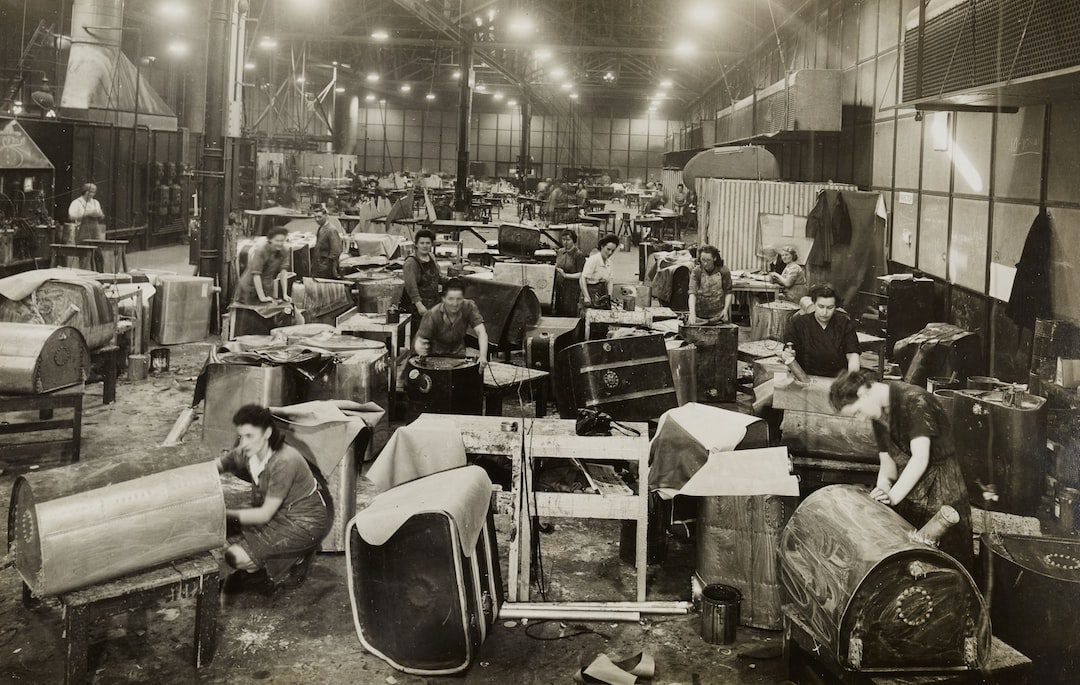The Potential of Blockchain Technology for Supply Chain Management in Manufacturing
The manufacturing industry has always been characterized by complex supply chains, involving multiple stakeholders, extensive paperwork, and a lack of transparency. However, with the emergence of blockchain technology, these challenges are now being overcome, opening up new opportunities for the industry. Blockchain has the potential to transform supply chain management in manufacturing, bringing greater efficiency, transparency, and trust to the process.
One of the key benefits of blockchain technology is its ability to provide a transparent and immutable record of transactions. In a supply chain context, this means that every step in the manufacturing process can be recorded and verified on a blockchain. This can help to prevent fraud and counterfeiting, as it becomes much more difficult to alter or tamper with the information stored on a blockchain. This increased transparency and security can help to build trust between manufacturers, suppliers, and customers, creating a more efficient and reliable supply chain.
Blockchain technology can also improve the traceability of products in the manufacturing industry. By recording every transaction on a blockchain, manufacturers can easily track the movement of goods from raw materials to finished products. This can be particularly useful in industries where product provenance and quality control are critical, such as food and pharmaceuticals. In the event of a product recall, for example, manufacturers can quickly trace the origin of the faulty product and implement the necessary corrective actions.
Moreover, blockchain technology can streamline the procurement process in manufacturing. Traditionally, procurement involves multiple stakeholders, including suppliers, manufacturers, distributors, and customers. Each step of the process requires extensive communication, documentation, and verification. By implementing blockchain technology, these processes can be automated and streamlined, reducing the administrative burden and eliminating the need for intermediaries. Smart contracts, a feature of blockchain technology, can facilitate automatic payments and enforce contractual obligations, further improving the efficiency of procurement processes.
In addition to improving transparency and efficiency, blockchain technology can also enable new business models and collaboration opportunities in the manufacturing industry. Blockchain can enable the creation of decentralized marketplaces, where manufacturers and suppliers can directly interact and conduct business without the need for intermediaries. This can reduce costs, increase market access, and enable manufacturers to leverage a wider range of suppliers and partners. Moreover, blockchain can facilitate the sharing of data and information between different stakeholders, enabling collaboration and innovation in manufacturing.
Despite the numerous benefits, the widespread adoption of blockchain technology in manufacturing still faces some challenges. One of the main challenges is the interoperability of different blockchain platforms. As not all manufacturers and stakeholders use the same blockchain platform, interoperability and standardization are crucial for the seamless exchange of information and transactions. Additionally, the scalability of blockchain technology is a concern, as it needs to handle a large volume of transactions in real-time, which may strain the existing blockchain infrastructure.
In conclusion, blockchain technology has the potential to revolutionize supply chain management in the manufacturing industry. By providing transparency, traceability, and automation, blockchain can improve efficiency, reduce fraud, and enable new business models. However, widespread adoption still requires addressing challenges such as interoperability and scalability. As more manufacturers and stakeholders recognize the benefits of blockchain, the industry is likely to experience significant transformations in the coming years. It is important for manufacturers to start exploring and experimenting with blockchain technology to stay ahead in this rapidly evolving landscape.

